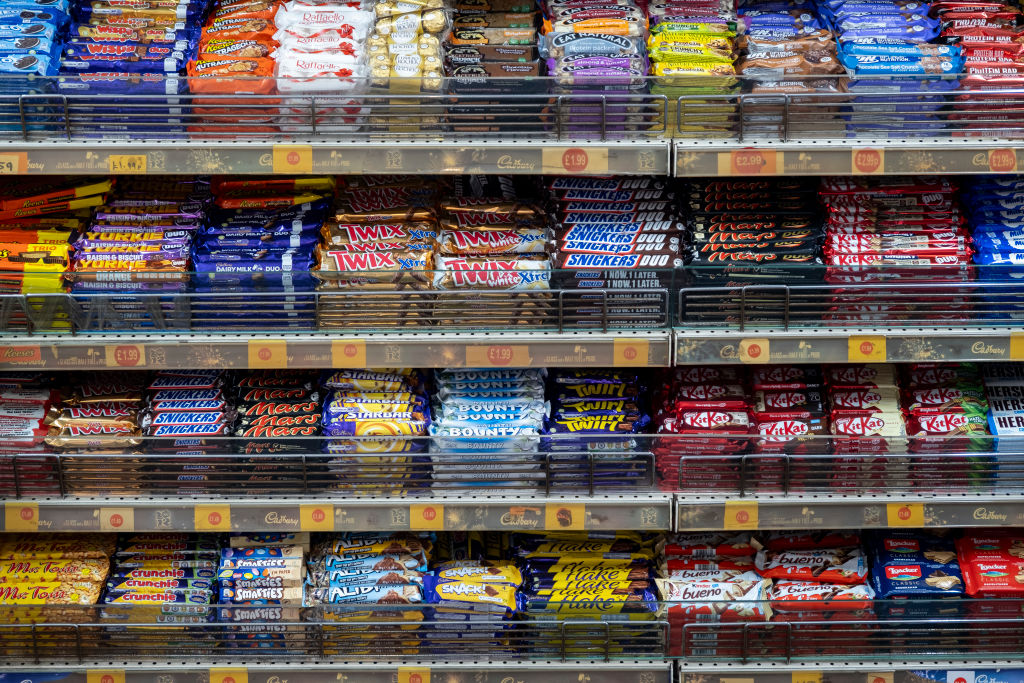UK food price inflation rate ‘lowest level in two years’, British Retail Consortium finds
Food price inflation is at its slowest rate since March 2022, according to the BRC. It also found non-food products have gone into deflation.


Get the latest financial news, insights and expert analysis from our award-winning MoneyWeek team, to help you understand what really matters when it comes to your finances.
You are now subscribed
Your newsletter sign-up was successful
Want to add more newsletters?

Twice daily
MoneyWeek
Get the latest financial news, insights and expert analysis from our award-winning MoneyWeek team, to help you understand what really matters when it comes to your finances.

Four times a week
Look After My Bills
Sign up to our free money-saving newsletter, filled with the latest news and expert advice to help you find the best tips and deals for managing your bills. Start saving today!
Food price inflation has fallen to its lowest level in more than two years, new figures from the British Retail Consortium (BRC) have shown.
The trade body, which represents most major supermarkets and high street chains, recorded a food inflation rate of 3.4% in the first week of April. This was down on the 3.7% year-on-year rate recorded in March, and means inflation in the key category is now at its lowest level since March 2022.
Meanwhile, non-food products moved into deflation, which means prices are falling compared to a year ago. The BRC put this down to store promotional activity, with retailers attempting to drive up consumer spending. But it warned global tensions, such as the conflict in the Middle East, could yet derail the downward trend in prices.
MoneyWeek
Subscribe to MoneyWeek today and get your first six magazine issues absolutely FREE

Sign up to Money Morning
Don't miss the latest investment and personal finances news, market analysis, plus money-saving tips with our free twice-daily newsletter
Don't miss the latest investment and personal finances news, market analysis, plus money-saving tips with our free twice-daily newsletter
It comes as headline UK inflation fell to 3.2% in March. This drop in the Consumer Prices Index (CPI) was led by food prices, although it was not as much of a fall in the rate of price hikes as markets had been expecting. The situation has led to concerns that Bank of England interest rate cuts could be delayed, which in turn has had a knock-on effect on mortgage rates. We will find out what the inflation rate for April has been in mid-May.
Food price inflation falls for twelfth consecutive month, BRC says
The BRC, which runs its Shop Price Index in partnership with NielsenIQ, measured store price inflation from 1 to 7 April. Overall, it said the rate of price increases across all of the goods it measured fell to 0.8% from the 1.3% it recorded in March. It means retail products are 0.8% more expensive on average than they were in April 2023 - the lowest rate the trade body has seen since December 2021, when the cost of living crisis arguably began.
Within this headline figure, food prices actually rose 0.5% month-on-month despite the yearly rate of inflation for the category dropping to 3.4%. Fresh food, which includes products like meat and dairy, saw its annual rate fall from 2.6% in March to 2.4% in April - its lowest level since November 2021. Meanwhile, ambient foods (e.g. tinned products and cereals) saw a decline from 5.2% to 4.9% - the slowest inflation rate for the category since June 2022, but one which is still outpacing headline UK inflation.
There was better news for consumers in non-food retailer aisles, where prices fell both year-on-year and compared to the previous month. The annual inflation rate fell from 0.2% in March to -0.6%. April’s prices were also 0.8% lower than March’s.
Better inflation news, but prices could rise again
Helen Dickinson, the BRC’s chief executive, said the news had been driven by increased competition among retailers. She said: “One year on from the peak, shop price inflation levels are showing signs of normalising, providing relief to households.
“Both food and non-food have seen shop inflation rates ease to more manageable levels. In April, non-food prices fell, especially in clothing and footwear, where retailers ramped up promotions to encourage consumer spend. Food inflation slowed for the 12th consecutive month, as fresh products such as butter, fish and fruits, continued to fall in price due to easing input costs and intense competition between grocers.”
However, Dickinson warned inflation could yet spike again amid an uncertain global outlook. While the odds of an escalation in the ongoing conflict in the Middle East have reduced, attacks have continued to hit Red Sea shipping. Furthermore, climate events have hit production of key commodities like chocolate.
She added: “While consumers will welcome the lower shop price inflation, geopolitical tensions and the knock-on impact on commodity prices, like oil, pose a threat to future price stability. Retailers will continue to do all they can to keep prices down, but the government has a role to play with pro-growth policies that allow businesses to invest in the customer offer.”
Get the latest financial news, insights and expert analysis from our award-winning MoneyWeek team, to help you understand what really matters when it comes to your finances.
-
 Should you buy an active ETF?
Should you buy an active ETF?ETFs are often mischaracterised as passive products, but they can be a convenient way to add active management to your portfolio
-
 Power up your pension before 5 April – easy ways to save before the tax year end
Power up your pension before 5 April – easy ways to save before the tax year endWith the end of the tax year looming, pension savers currently have a window to review and maximise what’s going into their retirement funds – we look at how
